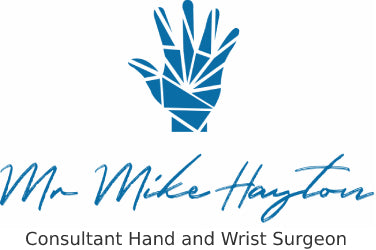Nerve Conduction Studies in Carpal Tunnel Syndrome - A patient's guide
Nerve conduction studies are an important test used in the diagnosis and indeed management of patient's with suspected carpal tunnel syndrome. The tests help to provide evidence to support the diagnosis of carpal tunnel syndrome and can in some cases, when the tests are negative, provide evidence for other potential causes of hand numbness, tingling and pain. The results of nerve conduction studies can also help guide the management of carpal tunnel syndrome, particularly when treatment has not been fully successful.
Who will perform the test?
Nerve conduction studies are carried out by a specially trained individual, typically by a medical doctor who comes under the title of a Clinical Neurophysiologist.
How are nerve conduction studies for carpal tunnel syndrome performed?
In the vast majority of cases where nerve conduction studies are performed to investigate possible carpal tunnel syndrome the test is entirely non-invasive. Small electrical impulses are used to stimulate the nerves. These are usually felt as a tapping/pulsing sensation. Patients may also feel a tingling sensation at the time of the test. When the nerves that make the muscles move are tested nerve conduction studies do make the muscles twitch. While some patients do find the test unusual and a little uncomfortable the majority of individuals do not find nerve conduction studies painful.
In a minority of patients it may be necessary to examine some of the muscles with a fine needle. This is however only rarely needed in the investigation of carpal tunnel syndrome.
What are the side effects and risks?
Testing for carpal tunnel syndrome with nerve conduction studies has no side-effects.
If you have been fitted with a pacemaker or de-fibrillator it is however important to let the doctor performing the nerve conduction studies prior to the test.
How long will the nerve conduction study take?
When testing for carpal tunnel syndrome the test usually takes about 20minutes, although in some cases it can take a little longer.
Is there anything else I should know?
The test is safe in pregnancy and you may eat and drink normally before the nerve conduction studies. If you are currently taking any medication you should continue to do so, unless otherwise advised by your own GP or Consultant.

